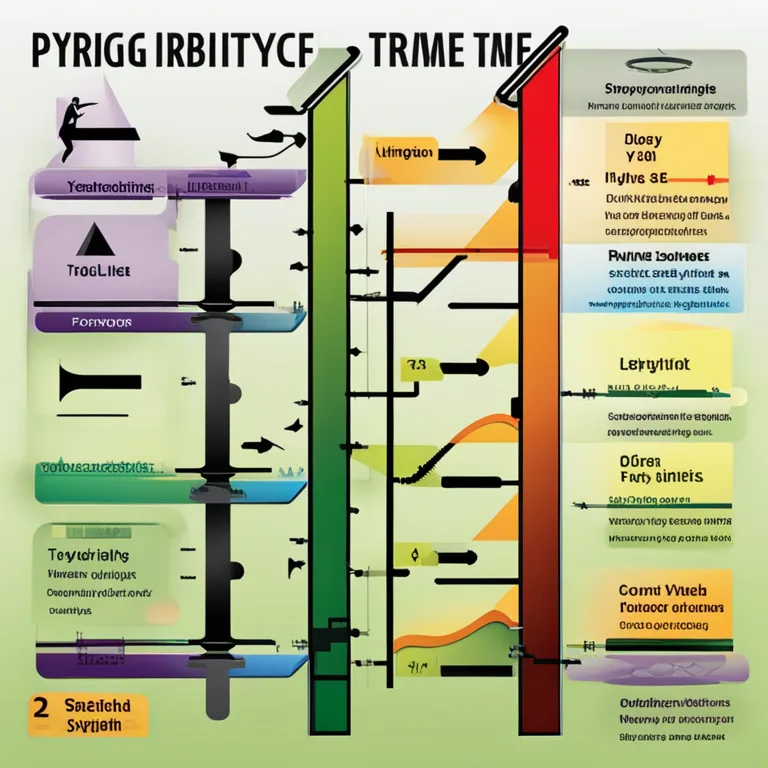
Exploring The Accuracy of Biorhythms: Fact or Fiction?
Explore the validity of biorhythm theory in predicting physical, emotional, and intellectual cycles. Is there science behind the claims, or is it all just speculation?
article by Adrian Wallace
Biorhythms: A Brief Introduction
The concept of biorhythms can be traced back to the 19th century when it was first suggested that our daily lives are influenced by innate biological cycles. These cycles purportedly govern our physical, emotional, and intellectual abilities, shaping how we perform and feel on any given day. According to biorhythm theory, these cycles start at birth and continue throughout our lives, each with its own specific rhythm and duration. But the question remains: does this concept have any scientific backing, or is it another pseudoscience?

Scientific Scrutiny and Current Understanding
Throughout the years, the theory of biorhythms has undergone scientific scrutiny. Researchers have sought evidence correlating these cycles with aspects of human behavior and well-being. To date, the scientific community largely views biorhythms as pseudoscientific, noting a lack of empirical evidence supporting the theory's predictive capabilities. Instead, most fluctuations in performance or mood are attributed to a complex interplay of factors, including health, environment, and personal experiences.

The Physical Cycle Examined
The physical cycle, which is said to last 23 days, relates to one's strength, stamina, and vitality. Biorhythm enthusiasts claim that being aware of this cycle can aid in planning activities that require physical effort. However, physiologists argue that physical states depend more on lifestyle choices, nutrition, sleep patterns, and exercise routines rather than an invisible biological rhythm predicted from the date of birth.

The Emotional Cycle Decoded
Cited as a 28-day cycle, the emotional biorhythm presumes to predict one’s emotional stability or stress. But mood and emotions are complex psychological states influenced by a myriad of factors including social interactions, mental health, and even the weather. While there is a recognition of periodic fluctuations in mood, such as those related to hormonal cycles, no consistent cycle timed at 28 days has been verified by psychological studies.

The Intellectual Biorhythm
The intellectual cycle, with a 33-day span, proposes predictions on our cognitive skills and decision-making abilities. Yet, cognitive performance is known to be affected by a broad spectrum of variables like sleep quality, stress levels, diet, and even novelty of the task at hand. The intellectual prowess of a person does not simply ebb and flow in a fixed pattern, thereby casting doubt on this aspect of biorhythm theory.
Biorhythms and Holistic Well-Being
Despite skepticism from the scientific community, biorhythms continue to be embraced by many as a tool for introspection and holistic wellness. While lacking empirical support, the practice encourages individuals to reflect on their bodies’ patterns, leading to greater self-awareness and potentially healthier lifestyles. Therefore, while biorhythms may not be accurate predictors, their value may lie in fostering mindful living and personal well-being.
Conclusion: Weighing the Evidence
In the light of contemporary scientific understandings, biorhythms are considered with a critical eye. While they offer an interesting perspective on life's ups and downs, their predetermined and rhythmic nature is not substantiated by robust scientific evidence. As we evolve in our understanding of human biology and behavior, it remains important to differentiate between compelling theories and those grounded in anecdotal evidence and personal belief systems.
Published: 12/28/2023
Modified: 12/28/2023
More predictions
Come back here soon to learn more about yourself and your future


Exploring Human Biorhythmic Cycles
Explore the fascinating concept of biorhythms and their influence on physical, emotional, and intellectual faculties in humans.


The Reality Of Biorhythm Compatibility
Unravel the truth behind biorhythm compatibility and its role in personal relationships and daily life.


Biorhythms In Humans Explored
Exploring the concept of biorhythms and their influence on human behavior and physical states.